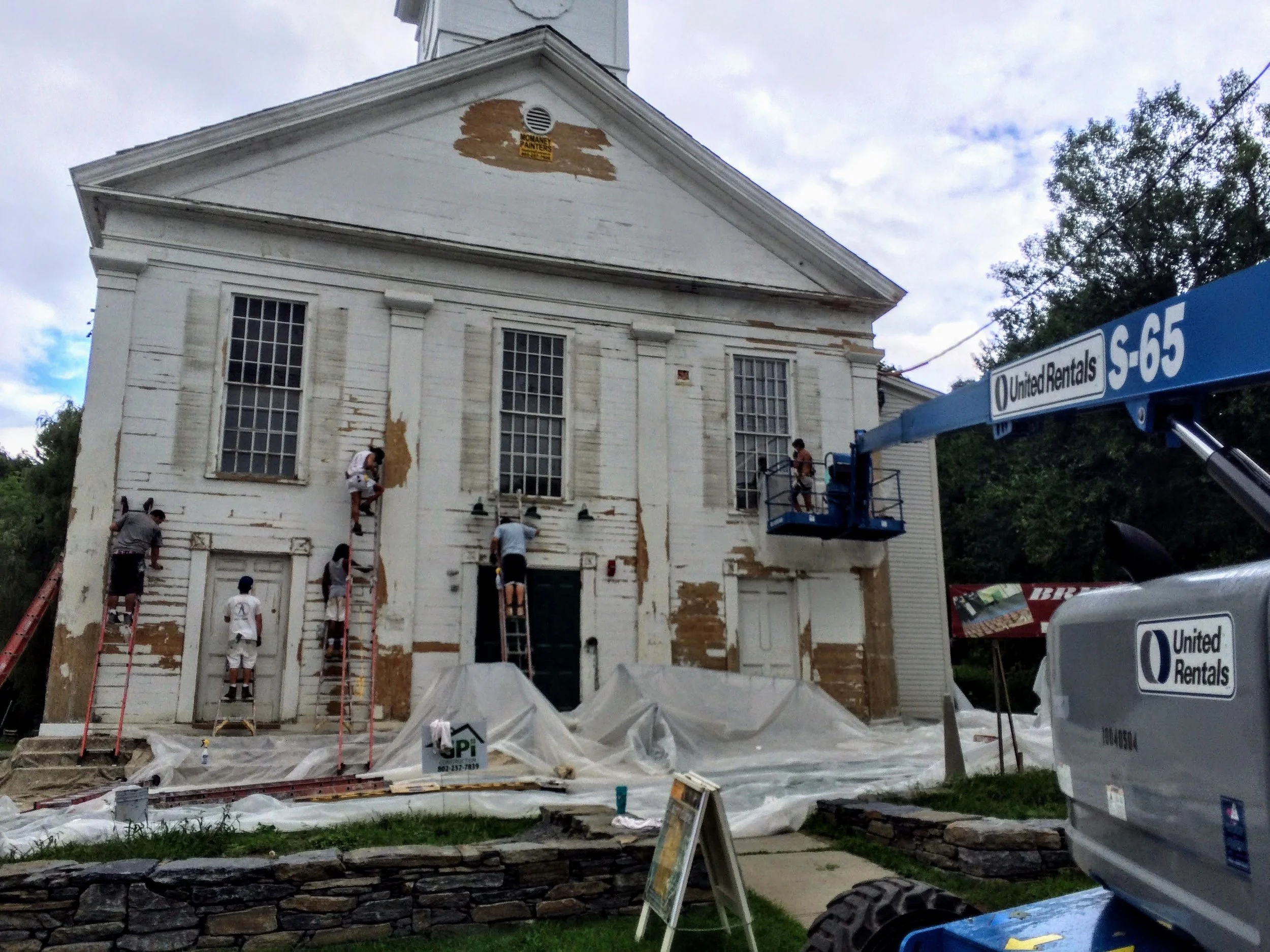
Our Story
Mission, Vision, & History
Founded in 2010 after two fires devastated the village center, Next Stage serves as a magnet for community connection and cultural exploration. We stimulate cultural engagement by creating opportunities for collaboration among audiences, artists, and educational & arts organizations. Next Stage is the only multi-discipline, year-round presenter in our community and has become the vital link in the cultural, artistic and economic pulse of rural, southern Vermont.
Mission: Next Stage Arts’ mission is to foster engagement and dialogue through the creation of those spaces, literal and figurative, where diversity, in all its forms, is honored, nourished, and embraced.
Vision: Next Stage serves southeastern Vermont as a regional cultural hub, arts producer, and instigator of meaningful cultural experiences.
Historic Preservation & Renovation
Building a cultural hub.
Inspired by the energy and will of the Putney Historical Society to rebuild The Putney General Store after two fires store, a group of committed neighbors formed Next Stage Arts around a singular, shared vision: converting the deteriorating church into an accessible community resource and performance venue.
The collective goal was to transform a historic building by honoring the integrity of its architecture, updating its use while preserving and enhancing its traditional role as a gathering place in the center of the village. A feasibility study concluded that the building, with its outstanding acoustics and large hall, was physically suitable and adaptable to its intended new uses and that very few halls of this size (150-200 seats) existed in the region. Next Stage decided to immediately commence programming in the neglected space during this period of time, in effect creating a “living survey” prior to making major investments towards restorations or building upgrades.
In 2016, Next Stage completed its $1.8 million renovation project. The result is a 200-seat, state of-the-art, fully accessible performance venue, with a dance floor, green room, a commercial-grade kitchen, art gallery, and community rooms.
“In their words…..
A first-hand account of the stories from the people who breathed life into Next Stage Arts.
Billy Straus Photo by Mitch Weiss
Lyssa Papazian Photo by Mitch Weiss
Lyssa and Billy discuss the original conversations to create Next Stage, discussing The Putney Historical Society and The Putney General Store's relationship to the origins of Next Stage. They explain how the church went from a small congregation to being handed over to The Historical Society to pulling in key figures to create the origins of Next Stage.
Eric Bass Photo by Mitch Weiss
John Burt Photo by Mitch Weiss
John and Eric discuss the impact and role the arts play in a rural community, the larger picture of how creative placemaking can define success for a rural village in America, and how the impact the arts can have on economic development in a small town that relies on its village center to be the glue. This is where we find one another as a community.
Michael Wells Photo by Mitch Weiss
Barry Stockwell Photo by Mitch Weiss
Chip Greenberg Photo by Mitch Weiss
Michael, Barry, and Chip discuss the renovation, contracting, and designs for the theater. The architect, contractor, and lifetime musician discuss how the pieces came together, from design to construction.
Maria Basescu Photo by Mitch Weiss
Julian McBrowne Photo by Mitch Weiss
Maria, the first executive director, and Julian discuss programming and taking the natural acoustics of the former church and getting it ready for amplified music. The foundations of the character, brand, and life of the organization are discussed.
Anita Dunlap Childs
Virginia Scholl
Rebecca Waxman
Rebecca, Anita, and Virginia talk through the beginnings of the board of directors, starting an organization, and getting the community's input, guidance, and support.




























